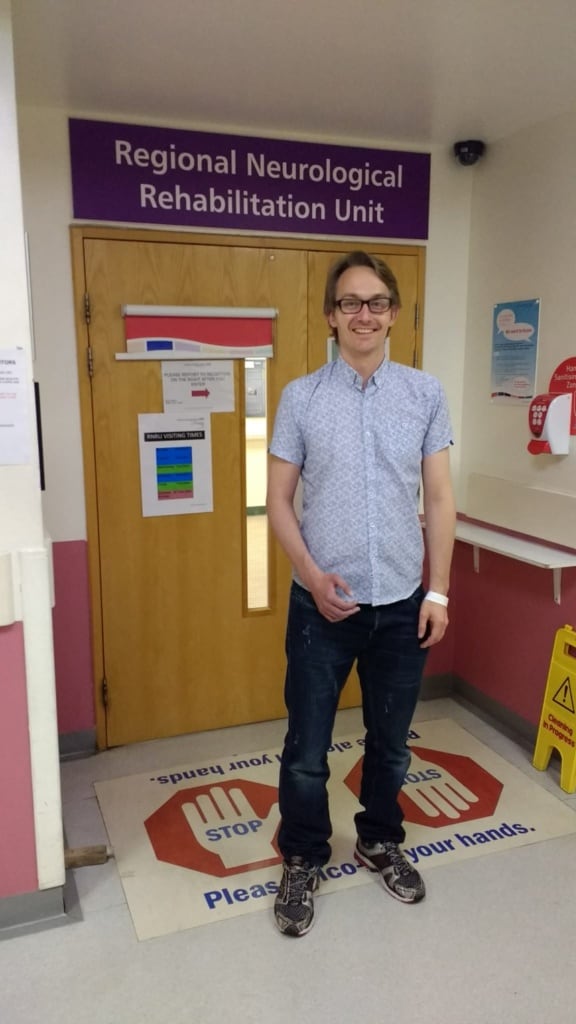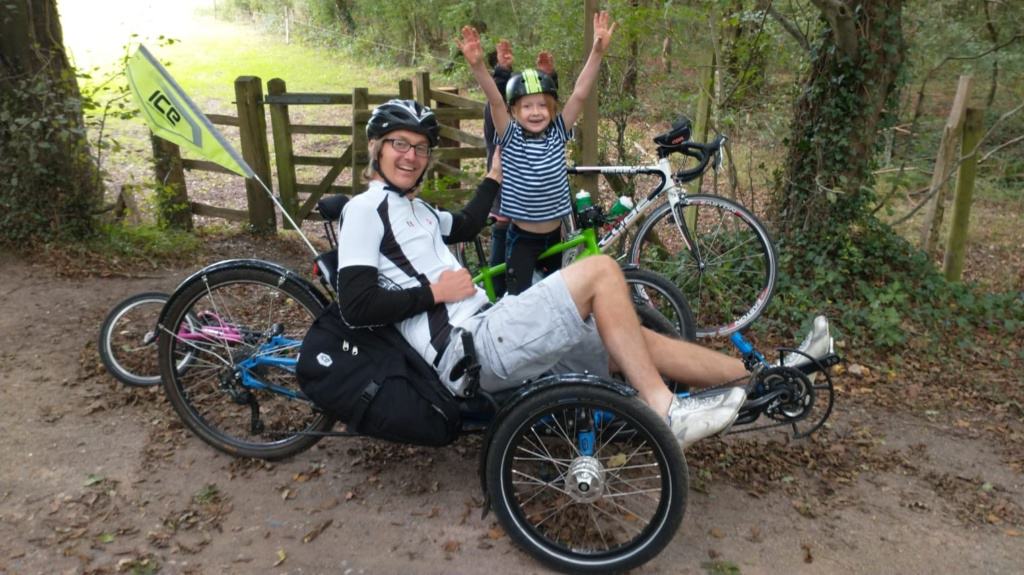In this blog George tells us about his lifelong love of cycling, both before and after he had a stroke aged thirty-six, and how important his recumbent trike and volunteering at Wheels for Wellbeing sessions have been in his recovery.
“I have always loved cycling. At the age of 11, when my family lived in Bonn, Germany, I got a mountain bike and my friends and I used to go cycling in the Siebengebirge hills, just southeast of Bonn. In my mid-twenties, and living in the UK, I got really keen and I bought a road bike. At weekends I would get up early and cycle out of town and into Surrey with my friends. Nearly every weekend, we cycled up hills and down hills for 60 to 100 miles! I also did cycling sportives in the UK and in France, including the “Marmotte”, an alpine event in France that went over four mountains and up Alpe d’Huez – the greatest climb in the Tour de France.”

.
“Fast forward to just before my thirty-seventh birthday and a severe stroke: I couldn’t move, speak or do anything, I was paralysed. The stroke was caused by blood vessel in my neck collapsing and stopping the oxygen getting to my brain. I spent six months in hospital including in the Intensive Care Unit. The doctors didn’t know how long the most serious impacts of the stroke would last because some people recover quickly in the first few weeks, but I didn’t. I couldn’t speak for two months and I had to have speech therapy.”
“I had treatment for walking again, getting my arm moving, and balance. It was hard and the fatigue is overpowering.”
“I used to cycle and run for fun and now it is very hard to do 30 minutes of physio and, while the does fatigue get less, it doesn’t ever go completely. Today, I can walk again, with a slight limp and my right hand doesn’t move well. I can clasp, but I can’t release and the whole arm is weak. The speech aphasia is terrible, but it’s slowly, slowly getting better.”
“During my recovery my friends clubbed together and got a recumbent trike for me (two wheels at the front and one at the back) and I really enjoy using it. My trike is a way of overcoming the fatigue, and the freedom when we go out for a cycle is quite something! It’s fantastic for my fitness too. I use my foot splint every day, but not when I’m cycling. I use clipless pedals and I’m sure that it helps my foot move. I also volunteer at Wheels for Wellbeing sessions in Ladywell. I love volunteering – it’s doing something right, helping people go cycling. It’s electric!”

“I have always loved cycling, and riding my recumbent trike helps me to stay positive and move on from my stroke. It’s a way of overcoming the fatigue.”
WfW have always loved cycling too, and we are so pleased to have George as one of our valued volunteers and share his story about the freedom and joy that a recumbent trike can bring. If you would like to know more about volunteering at WfW cycling sessions you can find more information here.
